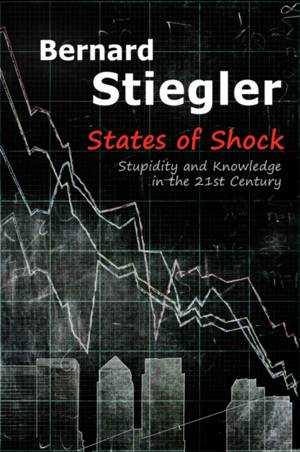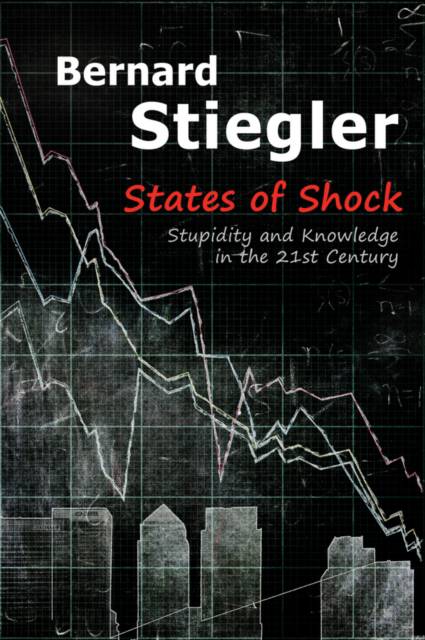
Bedankt voor het vertrouwen het afgelopen jaar! Om jou te bedanken bieden we GRATIS verzending (in België) aan op alles gedurende de hele maand januari.
- Afhalen na 1 uur in een winkel met voorraad
- In januari gratis thuislevering in België
- Ruim aanbod met 7 miljoen producten
Bedankt voor het vertrouwen het afgelopen jaar! Om jou te bedanken bieden we GRATIS verzending (in België) aan op alles gedurende de hele maand januari.
- Afhalen na 1 uur in een winkel met voorraad
- In januari gratis thuislevering in België
- Ruim aanbod met 7 miljoen producten
Zoeken
€ 46,95
+ 93 punten
Omschrijving
In 1944 Horkheimer and Adorno warned that industrial society turns reason into rationalization, and Polanyi warned of the dangers of the self-regulating market, but today, argues Stiegler, this regression of reason has led to societies dominated by unreason, stupidity and madness. However, philosophy in the second half of the twentieth century abandoned the critique of political economy, and poststructuralism left its heirs helpless and disarmed in face of the reign of stupidity and an economic crisis of global proportions.
New theories and concepts are required today to think through these issues. The thinkers of poststructuralism Lyotard, Deleuze, Derrida must be re-read, as must the sources of their thought, Hegel and Marx. But we must also take account of Naomi Klein's critique of Milton Friedman and the Chicago School and her account of the 'shock doctrine'. In fact, argues Stiegler, a permanent 'state of shock' has prevailed since the beginning of the industrial revolution, intensified by the creative destruction brought about by the consumerist model. The result has been a capitalism that destroys desire and reason and in which every institution is undermined, above all those institutions that are the products par excellence of the Enlightenment the education system and universities.
Through a powerful critique of thinkers from Marx to Derrida, Stiegler develops new conceptual weapons to fight this destruction. He argues that schools and universities must themselves be transformed: new educational institutions must be developed both to take account of the dangers of digitization and the internet and to enable us to take advantage of the new opportunities they make available.
New theories and concepts are required today to think through these issues. The thinkers of poststructuralism Lyotard, Deleuze, Derrida must be re-read, as must the sources of their thought, Hegel and Marx. But we must also take account of Naomi Klein's critique of Milton Friedman and the Chicago School and her account of the 'shock doctrine'. In fact, argues Stiegler, a permanent 'state of shock' has prevailed since the beginning of the industrial revolution, intensified by the creative destruction brought about by the consumerist model. The result has been a capitalism that destroys desire and reason and in which every institution is undermined, above all those institutions that are the products par excellence of the Enlightenment the education system and universities.
Through a powerful critique of thinkers from Marx to Derrida, Stiegler develops new conceptual weapons to fight this destruction. He argues that schools and universities must themselves be transformed: new educational institutions must be developed both to take account of the dangers of digitization and the internet and to enable us to take advantage of the new opportunities they make available.
Specificaties
Betrokkenen
- Auteur(s):
- Uitgeverij:
Inhoud
- Aantal bladzijden:
- 200
- Taal:
- Engels
Eigenschappen
- Productcode (EAN):
- 9780745664941
- Verschijningsdatum:
- 2/03/2015
- Uitvoering:
- Paperback
- Formaat:
- Trade paperback (VS)
- Afmetingen:
- 150 mm x 226 mm
- Gewicht:
- 430 g

Alleen bij Standaard Boekhandel
+ 93 punten op je klantenkaart van Standaard Boekhandel
Beoordelingen
We publiceren alleen reviews die voldoen aan de voorwaarden voor reviews. Bekijk onze voorwaarden voor reviews.









